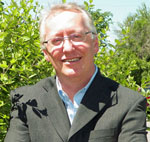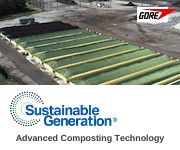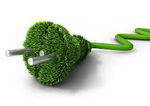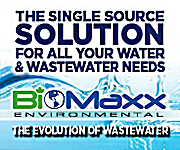 |
||||||||||||||||||||||||||
| Subscribe | Past Issues | www.cwwa.ca | Water Source Magazine | ||||||||||||||||||||||||||
|
CWWA News
While the last election didn’t change the minority situation at all, it did lead to a Cabinet shuffle with shifts in the many ministries related to water. This calls for new Mandate Letters for each minister. These letters clarify specific directions for that ministry to meet the Government’s broader objectives. We have been following and contributing to a number of policies and programs over the years and we look to these mandate letters to see which of these projects are still being supported, or if there might be new projects. We’re excited to share the dates and agenda for the 2022 Window on Ottawa. The Window on Ottawa is CWWA's signature event focused on federal water policy. It is a unique event where you learn about everything you ever wanted to know about water at the federal level…and were afraid to ask. We’ll be hosting the Window virtually over several weeks. The preliminary agenda is available from our website, we’ll be updating as we finalize plans and add speakers. Watch for registration coming soon. On March 10, CWWA launched our new Workforce Development Guidance Document. This document has been created by and for water, wastewater and stormwater utility managers — to offer guidance for addressing the challenges of recruiting, training and retaining qualified staff to maintain a resilient and sustainable utility. The purpose of this document is to assist you, as a utility manager. It is intended as a guide to setting up and implementing a workable process for developing your employees that ensures continuity of operations as staff leave or retire. It identifies several key themes to focus on and recommends some Best Practices. As a working guide, you’ll find helpful checklists to assess you and your team’s starting point and how to track progress. Mixed in, to inspire, we offer a few profiles of successful utility leaders and their initiatives – examples of what’s possible. In concert with launching the document we hosted a webinar featuring key issues in the document and providing discussion and experiences with workforce development.
Federal Initiatives
Bill S-5, Strengthening Environmental Protection for a Healthier Canada Act (short title) was introduced in the Senate on February 9, 2022. The bill introduces a right to a healthy environment for the first time in a federal statute in Canada. In addition, it proposes amendments to the Canadian Environmental Protection Act, 1999 (CEPA) that would strengthen measures to manage toxic substances and require that risk assessments take into account the cumulative effects of substances on the environment. The Bill also proposes amendments to create a new publicly available “Watch List” to encourage chemical substitution and would allow the Minister of the Environment to disclose the explicit chemical or biological name of a substance or the explicit biological name of a living organism in certain circumstances. Distribution systems represent a complex and dynamic environment, where numerous physical, chemical and biological interactions and reactions capable of significantly impacting water quality can occur. This guidance document describes the significance of biological stability in drinking water distribution systems, monitoring approaches and best practices designed to ensure safe drinking water. This guidance replaces the Guidance on the Use of Heterotrophic Plate Counts in Canadian Drinking Water Supplies.
This notice sets out the requirements for reporting to the NPRI for three individual calendar years - 2022, 2023 and 2024. Information for the 2022 calendar year must be submitted by June 1, 2023. Changes to reporting requirements are:
Many wastewater facilities are required to submit NPRI reports for both wastewater discharges and biosolids programs. For those who meet the requirements of this notice, reporting is mandatory. The Government is developing Canada’s first National Climate Change Adaptation Strategy, to be launched in the fall. The Strategy will establish a shared vision and a framework for action on how to build and maintain our infrastructure, steward the environment, make resilient economic decisions, and prepare for and prevent climate-related disasters. The National Water and Wastewater Conference offers a wide-ranging technical program covering almost all aspects of the municipal water sector, while offering the best networking environment for Canada’s water leaders. We've hosted the event as a series of webinars in 2020 and 2021, and are excited to be back in person at the Halifax Marriott Harbourfront Hotel from November 6-9.
If you are concerned about drinking water provision and public health protection, you likely attended, or wished you would have attended, the recent CWWA Symposium “Global lessons for safe drinking water through quality management”. This virtual symposium was organized by the Drinking Water Management subcommittee of the Water Quality Committee, which is chaired by Laith Furatian. Laith and his sub-committee pulled together an impressive set of ten distinguished guest speakers from around the world – Australia, New Zealand, UK, Iceland, US and Canada – to talk about the history and of drinking water quality management systems since the original development in the mid-1990s and the current status of these risk-based approaches to drinking water quality management, how they vary across various jurisdictions, some of the benefits, challenges and pitfalls. Using the marvels of virtual meeting technology, the symposium spanned 21 time zones over two 1.5 hour sessions on March 21 and 22, 2022. And it was all done at remarkably low cost. Member News
The Urban Links Research Group at Concordia University is assessing the potential for energy recovery in municipal water distribution networks across Canada. The following 15-min survey has been developed to estimate the amount of energy that could be recovered in existing networks: https://forms.gle/tkbVg3qpxniRUPer9 . Questions relate to hydraulic characteristics of the network, such as the presence of pressure-reducing valves, and pressure variation throughout the system. A copy of the survey is attached here showing all the information being collected. Answers will be collected for the next two weeks.
The Town of Mahone Bay boasts one of the premier scenic location in coastal Nova Scotia. CBCL was retained to develop a feasible plan for the implementation of effective flood and erosion protection measures to mitigate the impact of storm surges and high sea levels and allow the Town to beautify and enhance the shoreline. The project will be carried out in 3 stages: Site Analysis, Concept Design and Detailed Design
Provincial News
This new guidance manual provides information on innovative stormwater management practices, including green infrastructure (also known as low impact development) that uses techniques that mimic the natural environment and allow rainwater to be absorbed where it falls. Examples include rain gardens, green roofs, urban trees, permeable pavement and rainwater harvesting that can minimize the harmful impacts of stormwater runoff. In January 25, 2022, the Province announced that it is developing BC’s first Watershed Security Strategy and Fund. The first step is to explore key themes, including governance, climate change, ecosystems and sources of drinking water through the release of a discussion paper for feedback. The deadline for public comment on the discussion paper is March 18, 2022. Snippings & Clippings
Variety Ryan Reynolds and Blake Lively have announced they’ve donated $500,000 donation to Water First Education & Training. Established in 2009 as Tin Roof Global, Water First is a Canada-based charity that focuses on providing Indigenous communities with sustainable access to safe, clean water by training young people to become certified water operators and environmental technicians. The non-profit was created in response to the disparities to clean water access in Canada. Across the country, 15% of First Nation communities are under a drinking water advisory. Wall Street Journal At a sewage treatment plant on a sliver of land in Boston Harbor, trickles of wastewater are pumped into a plastic jug every 15 minutes. Samples from the jugs, analyzed at a lab in nearby Cambridge, Mass., are part of the growing effort to monitor the Covid-19 virus in wastewater across the U.S. On Deer Island in Boston, readings from the system covering 2.4 million people have recently shown virus readings leveling off after a steep decline from this winter’s Omicron-driven rise. In some areas, levels of the virus may be edging higher. Jackson officials want you to watch what you’re flushing down the drain. Those flushable wipes aren’t so flushable. They say their Department of Public Works has responded to a surge of sewer backups caused by personal care and cleaning wipes. Now, they are urging residents to not flush wipes down toilets. Global News A new report based on wastewater sampling suggests there are several drugs that residents of Halifax consume at higher rates compared with four other cities in Canada. Statistics Canada has released data on drug metabolites detected in wastewater in Toronto, Metro Vancouver, Montreal, Edmonton and Halifax in 2020. Cook County Record A federal judge ruled the maker of Dude Wipes can’t fully dispose of a class action lawsuit accusing the company of falsely marketing its products as flushable. Arlene Wyant, Dexter Cobb and Josefina Darnall sued Dude Products in federal court in Chicago, alleging violations of California, New York and Illinois law because Dude Wipes moistened toilet tissue don’t sufficiently break down in sewer and septic systems. In an opinion issued March 3, U.S. District Judge Sharon Coleman partially denied the company’s motion to dismiss the complaint. Blackburn News So-called flushable wipes continue to cause issues within the sewer systems across Chatham-Kent. The personal wet wipes are marketed as being safe to flush down toilets. However, General Manager of Chatham-Kent Public Utilities Commission Tim Sunderland, said the label of being flushable is misleading. ES&E Magazine The City of Winnipeg is considering signaling to bidders that it wants to see Indigenous workers and other under-represented groups as a key part of the labour supply for the next phase of its $552-million upgrade to the North End sewage plant. CWWA Member Profiles
|
||||||||||||||||||||||||||

.png)
.png)

.png)
thumb.jpg)



